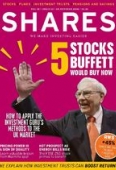Archived article
Please note that tax, investment, pension and ISA rules can change and the information and any views contained in this article may now be inaccurate.
Wrong weather and other excuses for poor trading

Companies on the stock market have more excuses as to why trading has been poor than even the sneakiest student trying to dodge their homework.
Just as the nation loves to talk about sun and rain; quoted companies love to blame the weather for their tills not ringing.
Some firms will be telling the truth. Most will just be clutching at topical events to mask what is fundamentally just poor market demand or a badly-run business.
Your job as an investor is to work out who is to blame – storm clouds or rubbish management.
Wilting in the heat
Bisto gravy and Hovis bread maker Premier Foods (PFD) on 12 October cooked up an absolute stinker of an excuse, in our opinion.
It attributed weak trading to the weather. The group blamed unseasonably high temperatures for a 1.8% decline in sales in the final month of its six month trading period to September.
The market seemed sceptical of an accompanying pledge to hit full year numbers. The shares fell by up to 10% on the news.
Grocery sales fell 9.5% and gravy and dessert sales dropped 13% and 9% respectively, in the second quarter. Its Sweet Treats and International business fared better, up a respective 6% and 13%.
If you think a bit of autumn sun means we don’t want any gravy on our sunday roast – as Premier Foods would have you believe – just imagine what excuses it may produce for its newly-launched Cadbury cakes range in the Middle East where it is hot for most of the year.
When the weather does matter
There are times when the weather does have a clear impact on the trading of certain sectors. For example, pubs tend to do well when it’s sunny.
A warm autumn and winter is bad news for the sales of high street retailers’ high margin coats and sweaters.
Heavy rainfall does not help the sale of fizzy drinks. Investors simply need to decide if an excuse is credible.
IRN-BRU seller A.G. Barr (BAG) is a quality name with a consistent record of creating shareholder value but half year results (27 Sep) still reflected poor early summer weather.
Total sales fell from £130.3m to £125.6m year-on-year. In our view, this is a blip rather than a poorly performing company searching for something to blame for its own failings.
Not stocking the right clothes
There have been warnings of late from a number of high street clothing retailers including Next (NXT), John Lewis and River Island. Many fashion sellers will have stocked autumn clothes in September, but you’re hardly going to have bought a big coat when the sun was still shining.
Women’s value fashion operator Bonmarche (BON) recently cited the wrong kind of weather for yet another poor trading performance. It is a serial offender and we wonder if there is a bigger problem afoot with the business given a string of disappointments since joining the stock market in 2014.
You need to compare like with like when it comes to the retail sector. A weak period for clothing doesn’t necessarily mean sellers of any kind of product will also struggle.
Soft furnishings firm Dunelm’s (DNLM) suggestion (6 Oct) that a warm September hit store footfall did not look too clever when sofa and carpets firm DFS Furniture (DFS) reassured on its own trading the same day alongside record full year results.
Shall we all blame Brexit?
The timing of major events and even religious festivals have been used to explain weaker-than-expected trading. The Brexit vote is increasingly being used by companies in 2016 as the central reason behind trading volatility.
British Airways owner International Consolidated Airlines (IAG) downgraded its earnings expectations only a few hours after the referendum results were published. One could suggest that was a ‘convenient’ event on which to blame weaker trading which may have already been trending before the vote.
Pay TV giant Sky (SKY) on 13 October attributed a slowdown in UK & Ireland customer growth to the Euro 2016 football championship and the Olympics. Quarterly growth of 35,000 customers compares with 77,000 in the same period last year.
While the company cites a similar weakening around the London 2012 games, investment bank Liberum is sceptical and helpfully draws a comparison instead with the Beijing Olympics event in 2008.
‘The London Olympics was a special event, happening as it did in the UK,’ says Liberum analyst Ian Whittaker. ‘Given this year’s event was in Rio, was several time zones away and did not have the “Home Effect” we think a better comparable to look at is the Beijing Olympics in 2008.’
As the broker points out there was no obvious yearly deterioration in customer growth linked to the Olympics event eight years ago.
Important information:
These articles are provided by Shares magazine which is published by AJ Bell Media, a part of AJ Bell. Shares is not written by AJ Bell.
Shares is provided for your general information and use and is not a personal recommendation to invest. It is not intended to be relied upon by you in making or not making any investment decisions. The investments referred to in these articles will not be suitable for all investors. If in doubt please seek appropriate independent financial advice.
Investors acting on the information in these articles do so at their own risk and AJ Bell Media and its staff do not accept liability for losses suffered by investors as a result of their investment decisions.

 magazine
magazine









